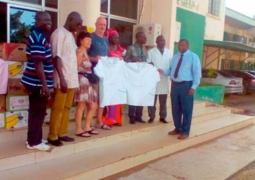This laudable Sealink project, according to FEWACCI, will link all the 15 West African countries and those in Central Africa to facilitate trade and the movement of goods and people, and thereby help to grow the economies of these regions.
The modus operandi of the initiative is to set up a transnational company to be owned by investors from all member countries of the regions, with its headquarters in one of the ECOWAS member states and representative offices in these countries.
The vision for this project is to foster inter-regional maritime passenger and freight services as a catalyst to trade development in and between sub-regions in Africa.
It is, therefore, out to complement and improve existing transportation (road and airline) services by providing additional capacity and the alternative of ocean transport routes.
While Africa has the lowest intra-continental trade in the world, West Africa, which formed the Economic Community of West African States on 28 May 1975 to promote economic integration through free movement of goods and people, has been suffering from the severe ailment of sub-regional trade deficiency more than every other region of the continent.
Trade across member countries has been seriously impeded due to lack of cooperation in promoting free movement of people and goods, which is largely responsible for the economic backwardness and slow development of the region.
Land and air routes have not really helped either, as traders and people find it extremely difficult to move and trade across the region due to delay and excessive logistical costs encountered by people through the mushroom of checkpoints and high freight costs they have to grapple with, when they venture in regional trade activities.
But with the Sealink project, this inimical situation will be a thing of the past, as countries in the region can grow economically by trading among each other.
Nations would also grow in capital through expanded investment opportunities, as well as develop through the increased growth of the middle class level of people, who would be making a lot of income.
The project will open up lots of opportunities because of services the operation will demand.
There will be new entrants and new companies that will help the economy to grow at every level and every sector, and the nation ultimately would benefit from the activities.
Sub-Saharan Africa needs to have her own vessels carrying her own raw materials, her own finished products and her own people; this is important for the region to effectively compete globally.
''Sealink will connect all the ports in
the 15 ECOWAS member countries transporting both cargo and passengers.”
Bai Matarr Drammeh



